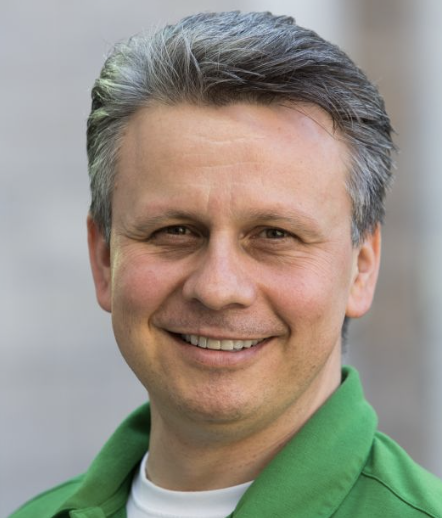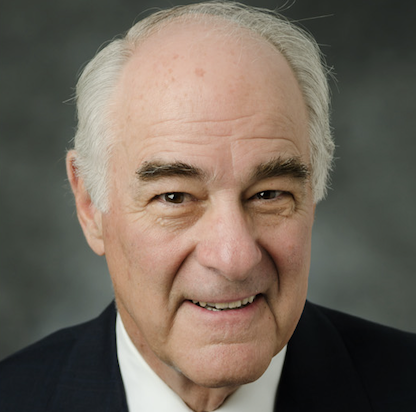History
The development of emotional brain training started in 1978, when founder Dr. Laurel Mellin joined the faculty at the School of Medicine, University of California, San Francisco. Concerned about the effectiveness of programs for childhood obesity, she reviewed the literature for findings that suggested a potential target for a new type of intervention. A study published in 1940 by Baylor College of Medicine's Hilde Bruch depicted the family frame of obese children, which Dr. Mellin interpreted as a maladaptive emotional connection between parent and child. She proposed teaching emotional skills to parents and children and limit-setting skills to parents to treat obesity.
With her colleagues Mary Croughan, PhD, and Larry Dickey, MD, Dr. Mellin developed new techniques and found that obese children spontaneously decreased overeating and lost weight. In contrast to traditional cognitive approaches that directly target behavior change and have not shown effectiveness in weight loss, training parents and children in the skills of emotional regulation and effective limit-setting resulted in significantly diminished eating without direct manipulation to change their behavior. It would take 30 years before neuroscientific research was available to explain the mechanism of these tools.
Dr. Mellin continued her research, adapting the skills to adult obesity and the treatment or prevention of any stress-related health problem. In 2002, her work caught the attention of Igor Mitrovic, MD, a neuroscientist and professor of physiology who began collaborating with Dr. Mellin. In April 2007, they had a breakthrough. Dr. Mitrovic developed a model of the relationship between neuronal stress circuitry and brain states, effectively linking brain wiring to physiology. According to this model, wires trigger brain states. Stressed brain states become persistent as the circuits are “allostatic” and without shut-off valves, and this persistent stress causes wear-and-tear and adaptation that increase the brain's overall stress load (“allostatic load”). It is this stress load or set point in stress that causes most mental health problems and chronic diseases.

Simultaneously, Dr. Mellin extended her emotion regulation techniques from being based on three levels of stress to five, adding the extreme positive and negative emotional states, which cognitive approaches failed to address. Including these skills was impactful as the extreme positive state, joy, as proposed by neuroscientist Antonio Damasio, switches off the stress response most effectively, and the extreme negative emotional state, a full-blown stress response, activates and unlocks the most health-damaging circuits for rewiring. The resulting 5-Point System of Emotional and Behavioral Regulation codified accessing the emotional brain's resiliency pathways by reproducible techniques for the full range of physiologic responses. The processes rapidly facilitated a return to the optimal state of joy for all five brain states.
The 5-Point System became the basis for EBT, as the processes of optimal self-regulation also conform to the brain state pattern that supports reconsolidation, the erasure of wires that can produce lasting post-treatment effects. EBT was revised to use this system to rewire reactive circuits that promote maladaptive and addictive behaviors and trauma-induced self-harming beliefs. As these techniques are simple and reliable, the 5-Point System allowed clinicians to support patients in rewiring trauma-induced neural circuits and to extend their clinical reach with mobile apps, other technology, and brief episodes of dyadic peer support.
Integrating both advances into a new treatment model, Drs. Mitrovic and Mellin, along with collaborators Lynda Frassetto, MD, and Lindsey Fish, MD, proposed a new paradigm in healthcare based on emotional brain training: rewiring the stress response.
Research on EBT continued, including studies at two- and six-years post-treatment supporting the method's effectiveness in improving stress-related mental and physical health barriers. In 2013, Drs. Mellin, Mitrovic, and Frassetto proposed Emotional Plasticity Theory, based on emotional brain training, with four postulates: 1) all living beings are driven by survival drives; 2) emotional memory systems evolved to promote survival; 3) these memory systems can change; and 4) adaptive plasticity of emotional memories improves health.
In 2022, Dr. Mellin advanced the 5-Point System as "Precision EBT," using the self-regulatory tools in specific ways to increase their effectiveness in rewiring trauma and addiction circuits. Currently, EBT is widely disseminated with a technology platform, professional training, and scalable services. Research is ongoing to support the method's becoming evidence-based, and the method's professional training has become scalable. The current focus of the method's development is on expanding research and professional training.
As shared stress levels continue to rise, the brain automatically shifts control from the thinking brain (“prefrontal cortex”) to the emotional brain, hampers thinking brain functioning, and activates emotions that are allostatic and difficult to process, resulting in chronic stress and stress reactivity. The most powerful step we can take now to improve the health of our population is to treat stress, disseminating scientific methods like EBT so that people can become stress resilient by rewiring their own circuits and preventing or more effectively treating health problems that arise. The mission of the Solution Foundation is to integrate EBT's knowledge and skills into healthcare and self-care with the goal of promoting emotional health for all.
The Board
The Solution Foundation's Board of Directors includes individuals who are researchers and leaders in emotional brain training and health:







